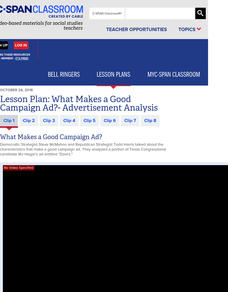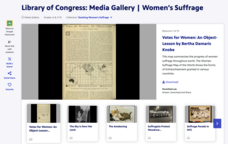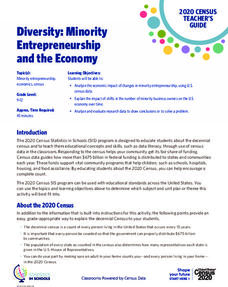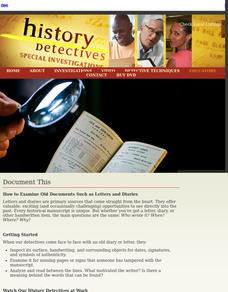Facing History and Ourselves
Violence and Backlash
Revolution and counterrevolution. Protest and counter-protest. Collaborators and bystanders. The focus of the fifth resource in the Reconstruction Era and Fragility of Democracy series is on the political violence that followed Radical...
Facing History and Ourselves
Interracial Democracy
Radical Reconstruction, the 10-year period referred to after Congress passed the Reconstruction Act of 1867, saw the establishment of manhood suffrage, men voting without any racial qualifications. Southern states also rewrote their...
Facing History and Ourselves
The Political Struggle, 1865-1866
Healing versus justice. The central source of tension following the United States Civil War was between the demands for healing and the demands for justice, the battle between President Andrew Johnson and Congress. A video introduces the...
Facing History and Ourselves
Defining Freedom
The Emancipation Proclamation freed slaves in the Confederate states. The Thirteenth Amendment banned slavery in the United States. However, neither document defined freedom. The second lesson in the Reconstruction Era series examines...
C-SPAN
What Makes a Good Campaign Ad?- Advertisement Analysis
In the time of a hotly contested presidential election, campaign ads are almost ubiquitous—but what makes them good? Using ads from the 2018 midterm elections, learners consider the various strategies candidates use to get the vote....
Teaching for Change
Selma in Pictures: Socratic Seminar
Photographs from the freedom movement in Selma, Alabama serve as the basis of two Socratic Seminars. Class members prepare for the seminars by closely observing the images, form a hypothesis, and use evidence from photo to support a...
C-SPAN
Primary and Secondary Sources: Trailblazers in Congress
Trailblazers forge the path into uncharted territory, they establish a precedent for others to follow. Young historians research trailblazers in Congress using primary and secondary sources to profile outliers that changed the face of...
PBS
Library of Congress: Media Gallery | Women's Suffrage
Designed to support a study of women's suffrage in the United States, a primary source document set from the Library of Congress includes images, song sheets, articles, statistical documents, political cartoon, and audio recordings...
US Department of Commerce
The Census Questionnaire: Then and Now
As the United States has changed, so has the census! While required by the Constitution, the questions the government asks to allot representation and federal funding has developed over time. Using images of previous censuses, young...
US Department of Commerce
Diversity: Minority Entrepreneurship and the Economy
Using data from the Census Bureau, learners discover the growth in minority-owned businesses over time. After crunching numbers, analytical questions probe the reasons behind the shift.
Judicial Branch of California
The Power of the Press: The First Amendment
Was what happened in 1886 at the Haymarket riot a crime or a case of xenophobia? Using political cartoons from the time, young historians consider the role the media played in anti-labor sentiment during the time and how that influenced...
Curated OER
Remembering the Fallen
A thought-provoking lesson showcases Civil War battlefield monuments to demonstrate how fallen soldiers are remembered. High school scholars compare Union and Confederate monuments to learn how each group commemorated the battles. They...
Curated OER
Gettysburg 360
An interactive site allows scholars to explore the Gettysburg battlefield up close, read soldiers' accounts, and view images of the event. In addition, enrichment activities enhance young historians' experience with Gettysburg 360.
American Battlefield Trust
1861: The Country Goes to War
While the firing on Ft. Sumter may have seemed like a sudden event, the long march to war spanned decades. Using games and a presentation, class members review the events that led up to the fateful April day in 1861 when brother turned...
American Battlefield Trust
Middle School Assessment for the Civil War Curriculum
The bravery of African American troops on the frontlines directly impacted the lives of the newly freed enslaved people. Using documents, including letters from African American troops and an excerpt of the Emancipation Proclamation,...
PBS
Document This
Being a historian requires serious sleuthing. They examine primary source documents and look for evidence, for clues that reveal who wrote the document, when, and why. After watching two historians model the process, young history...
American Museum of Natural History
Create Your Own Time Capsule
The corona virus pandemic is indeed a historic event. A time capsule activity permits young historians to document these days of social distancing, remote learning, and quarantine by collecting artifacts that capture what their lives are...
Stanford University
League of Nations
An interesting lesson explores the Treaty of Versailles and the creation of the League of Nations to prevent further large scale warfare in World War I. A presentation explains how the United States Congress reacted to the offer to join...
Stanford University
Edward Curtis Photographs
A picture is worth a thousand words. The photos of Edward Curtis capture the life and culture of Native American Tribes during the early part of the twentieth century. A presentation first gives background information on Edward Curtis...
Stanford University
Explosion of the Maine
An intriguing lesson features newspaper articles to help academics understand the political impact of the sinking the Maine and how the American media depicted the event. Scholars also view a presentation, participate in group...
American Battlefield Trust
Experiencing the Battle of Franklin
Scholars watch videos, study an animated map, and read a firsthand written account to explore the impact of the Battle of Franklin during the Civil War. Academics analyze images, complete worksheets, and create journal entries to...
American Battlefield Trust
Contraband Camp
An educational lesson plan explores the plight of African Americans escaping slavery during the Civil War. Learners view a presentation and analyze primary documents and images to understand the purpose of contraband camps and how they...
American Battlefield Trust
United States Colored Troops
The debate over slavery contributed to the Civil War, but it didn't stop African Americans from joining the military. Academics complete a series of worksheets, read original letters, and analyze a photo of an African American soldier to...
Stanford University
Japanese American Incarceration
Using documents, such as reports from government sources and civil rights activists, budding historians explore the justification for forcing hundreds of thousands of Japanese-Americans to leave their lives and re-evaluate that tragic...

























